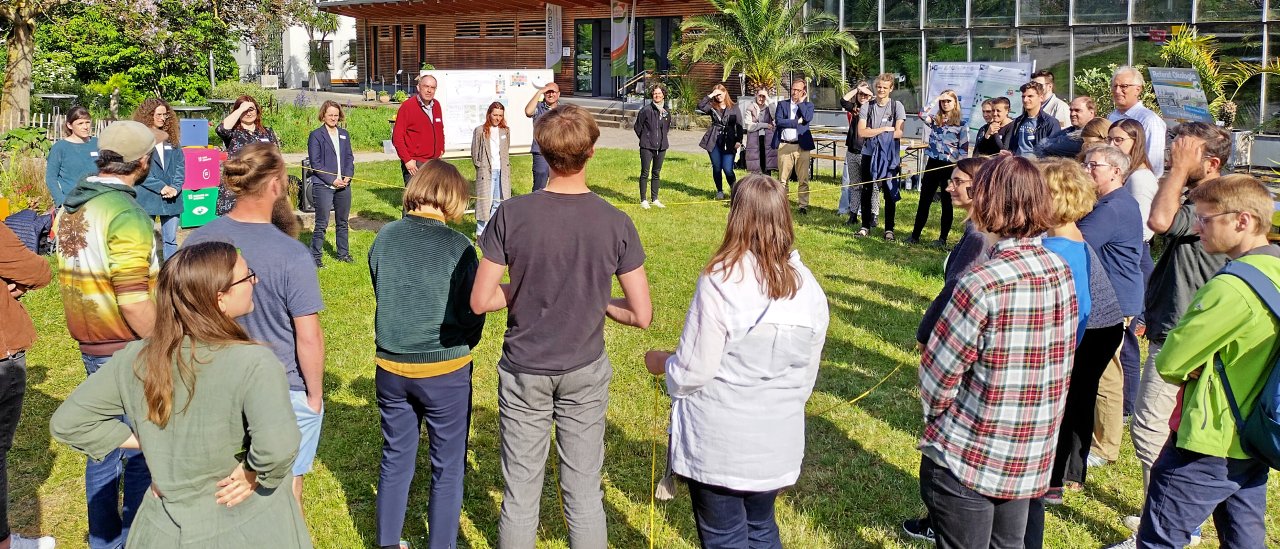BNE-Akteur
A university on the way to education for sustainable development as a cross-sectional task

Contact
Julius-Maximilians-Universität Würzburg
Emil-Hilb-Weg 22
Nachhaltigkeitslabor (WueLAB)
97074
Würzburg
Herr Prof. Dr. Markus Riederer
0931 3186200
0931 3186200
markus.riederer@
https://www.uni-wuerzburg.de/
The University of Würzburg has set itself the ambitious goal of comprehensively integrating Education for Sustainable Development (ESD) into the curricula of all degree programmes. For a university with a broad scope, this means a far-reaching commitment: ESD is to be anchored as a systemic cross-sectional task in teaching all subjects based on the Qualifications Framework for German Higher Education Qualifications.
A concrete sustainability strategy has already been adopted in management and strategy, including a detailed section on studying and teaching. This strategy was developed with the participation of all university groups. At the same time, the necessary institutional frameworks are being created to implement ESD profoundly and permanently.
ESD is implemented in teaching in various ways: interdisciplinary and transdisciplinary approaches to sustainability sciences, subject-specific perspectives on sustainability, and innovative learning and teaching methods.
To optimally prepare educators for these challenges, a higher education didactic training programme has been developed in the form of the 'Higher Education for Sustainable Development' certificate.
As a central component of ESD teaching, a virtual study programme, 'Interdisciplinary Sustainability Sciences', is being created and is aimed at all students across all disciplines.
Globale Nachhaltigkeitsziele (SDGs)
BNE-Preis

Übersicht
Aktiv in
Bayern
Bildungsbereiche
Higher Education, Extracurricular education and training, Training of Teachers/Educators/Multipliers, Other Education at out-of-school learning spaces
Thematische Schwerpunkte
Poverty Reduction, Construction and Housing, Digitalization, Energy, Nutrition, Intergenerational Equity, Gender Equality, Good Health and Well-Being, Globalization, Intercultural Learning, Cultural Diversity, Climate, Human Rights, Mobility and Traffic, Sustainable Cities and Communities, Responsible Consumption and Production, Decent Work and Economic Growth, Ecoystems/Biodiversity, Reducing global inequality, Sustainable Development Goals, Water
Sonstige Themen
Academic education and teaching
Weltaktionsprogramm
Learning Environments / whole-institution-approach, Building Capacities of Educators, Youth Action

